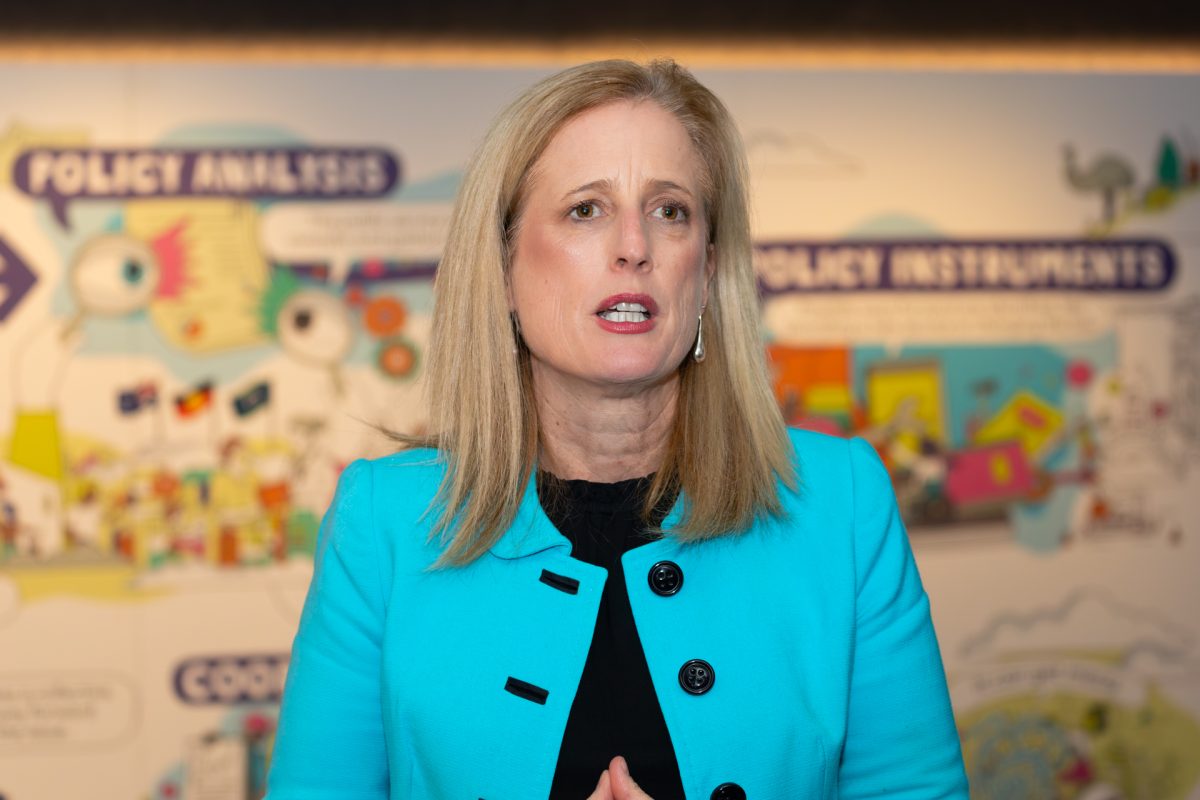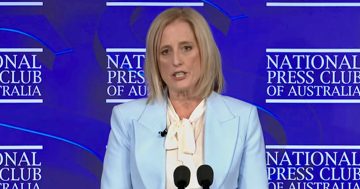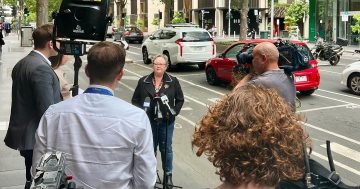
Senator Katy Gallagher said superannuation could be added to Paid Parental Leave starting in July of next year. Photo: Michelle Kroll.
The Federal Government will introduce legislation to add superannuation to Paid Parental Leave (PPL), set to kick in from July next year.
In what amounts to an election promise, Labor says the new laws will start from 1 July 2025, after the May deadline for the next federal election.
Before her National Press Club address on Thursday (7 March), Minister for Women Katy Gallagher said the reform is an investment in women’s economic security and the broader economy.
She said the government is serious about ensuring women are supported when balancing caring and working responsibilities. The announcement builds on work to modernise PPL and expand the payment to six months by 2026.
“The data is clear that when women take time out of the workforce to raise children, it impacts their retirement incomes with women retiring, on average, with about 25 per cent less super than men,” Senator Gallagher said.
“Paying super on government parental leave is an important investment to help close the super gap and make decisions about balancing care and work easier for women.”
The Coalition has promised to scrutinise the legislation once it is released, with Opposition frontbencher James Paterson describing the government’s move as a “new approach” during a media interview.
“We will look very carefully at the details, particularly the costings, and make sure the government has done its homework here and that the full cost is transparent and clear,” he said.
About 180,000 families currently receive government-funded PPL payments. The weekly paid rate is set at the minimum wage of $812.45.
This measure will deliver an extra 12 per cent, paid into a superannuation fund.
The announcement comes with the release of Working for Women, Australia’s first national strategy to achieve gender equality, which was the focus of Senator Gallagher’s press club address.
Paying superannuation on PPL was also a key recommendation of the Women’s Economic Equality Taskforce and has long been campaigned for by unions.
During the 2019 federal election campaign, Labor committed to including super in government PPL but dropped it at the 2022 election due to cost.
Since winning office, Labor introduced changes to give more families access to PPL, including through a more generous $350,000 family income test.
That began in July last year, as did rules to make it easier for both parents to share care. The government noted that taking time out of paid work to care for children is a normal part of working life for both parents.
An expansion to the scheme, which aims to give families an additional six weeks of PPL, is currently before the Senate.
If it passes, from 1 July this year, families will have access to an extra two weeks of leave, bringing it to 22 weeks in total.
That will increase to 24 weeks from July 2025 and 26 weeks from July 2026.
The government now says that paying super on the PPL will help normalise parental leave as a workplace entitlement, similar to annual and sick leave, and reduce the impact of parental leave on retirement incomes.
Social Services Minister Amanda Rishworth said paying superannuation on PPL is another key step to prioritise gender equality, better value care work and improve women’s workforce participation.
“It helps normalise taking time off work for caring responsibilities and reinforces Paid Parental Leave is not a welfare payment,” she said.
“It is a workplace entitlement just like annual and sick leave.”
Treasurer Jim Chalmers said further details, including the cost of this latest measure to pay superannuation on PPL, will be released in the May budget.
“Paying super on Paid Parental Leave is part of our efforts to ensure women earn more, keep more of what they earn, and retire with more as well,” he said.
“In the long-term, this important change means a more dignified and secure retirement for more Australian women.
“We’ve made clear for some time that this is a priority, and now we’re making it a reality.
“A stronger paid parental leave system is good for families and good for the economy as well.”
Original Article published by Chris Johnson on Riotact.











